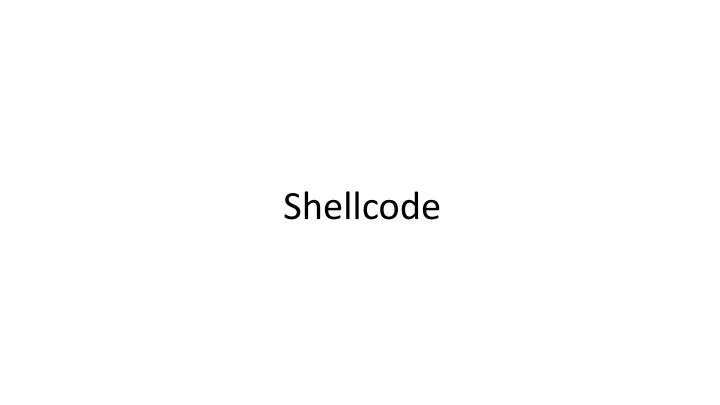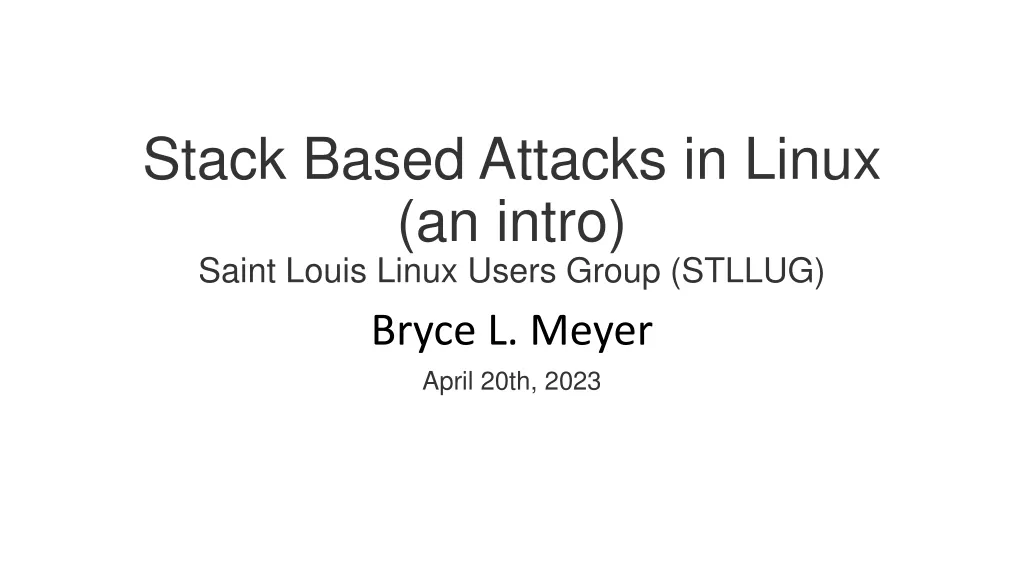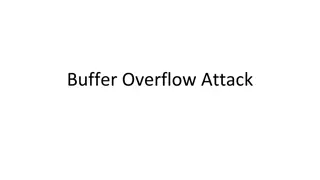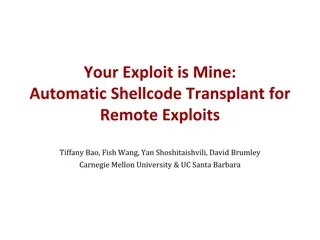
Writing Shellcode for Code Injection: Challenges, Techniques, and Execution
Discover the intricacies of writing shellcode for code injection attacks, including challenges, techniques, and the execution process. Learn about invoking system calls, setting registers, avoiding zeros, and more to create efficient shellcode. Dive into the world of assembly programming to harness the power of shellcode effectively.
Download Presentation

Please find below an Image/Link to download the presentation.
The content on the website is provided AS IS for your information and personal use only. It may not be sold, licensed, or shared on other websites without obtaining consent from the author. If you encounter any issues during the download, it is possible that the publisher has removed the file from their server.
You are allowed to download the files provided on this website for personal or commercial use, subject to the condition that they are used lawfully. All files are the property of their respective owners.
The content on the website is provided AS IS for your information and personal use only. It may not be sold, licensed, or shared on other websites without obtaining consent from the author.
E N D
Presentation Transcript
Outline Challenges in writing shellcode Two approaches 32-bit and 64-bit Shellcode
Introduction In code injection attack: need to inject binary code Shellcode is a common choice Its goal: get a shell After that, we can run arbitrary commands Written using assembly code
Writing a Simple Assembly Program Invoke exit() Compilation (32-bit) Linking to generate final binary
Writing Shellcode Using Assembly Invoking execve( /bin/sh , argv, 0) eax = 0x0b: execve() system call number ebx = address of the command string /bin/sh ecx = address of the argument array argv edx = address of environment variables (set to 0) Cannot have zero in the code, why?
Setting edx Setting edx = 0 xor edx, edx
Invoking execve() Let eax = 0x0000000b
How to Avoid Zeros Using xor mov eax, 0 : not good, it has a zero in the machine code xor eax, eax : no zero in the machine code Using instruction with one-byte operand How to save 0x00000099 to eax? mov eax, 0x99 : not good, 0x99 is actually 0x00000099 xor eax, eax; mov al, 0x99 : al represent the last byte of eax
Using Shift Operator How to assign 0x0011223344 to ebx?
Pushing the /bin/bash String Into Stack Without using the // technique
Getting the Addresses of String and ARGV[] Pop out the address stored by call . code omitted This address is pushed into stack by call
Data Preparation Putting a zero at the end of the shell string Constructing the argument array
Compilation and Testing Error (code region cannot be modified) Make code region writable
A Generic Shellcode (64-bit) Goal: execute arbitrary commands Data region List of commands
Summary Challenges in writing shellcode Two approaches 32-bit and 64-bit Shellcode A generic shellcode





